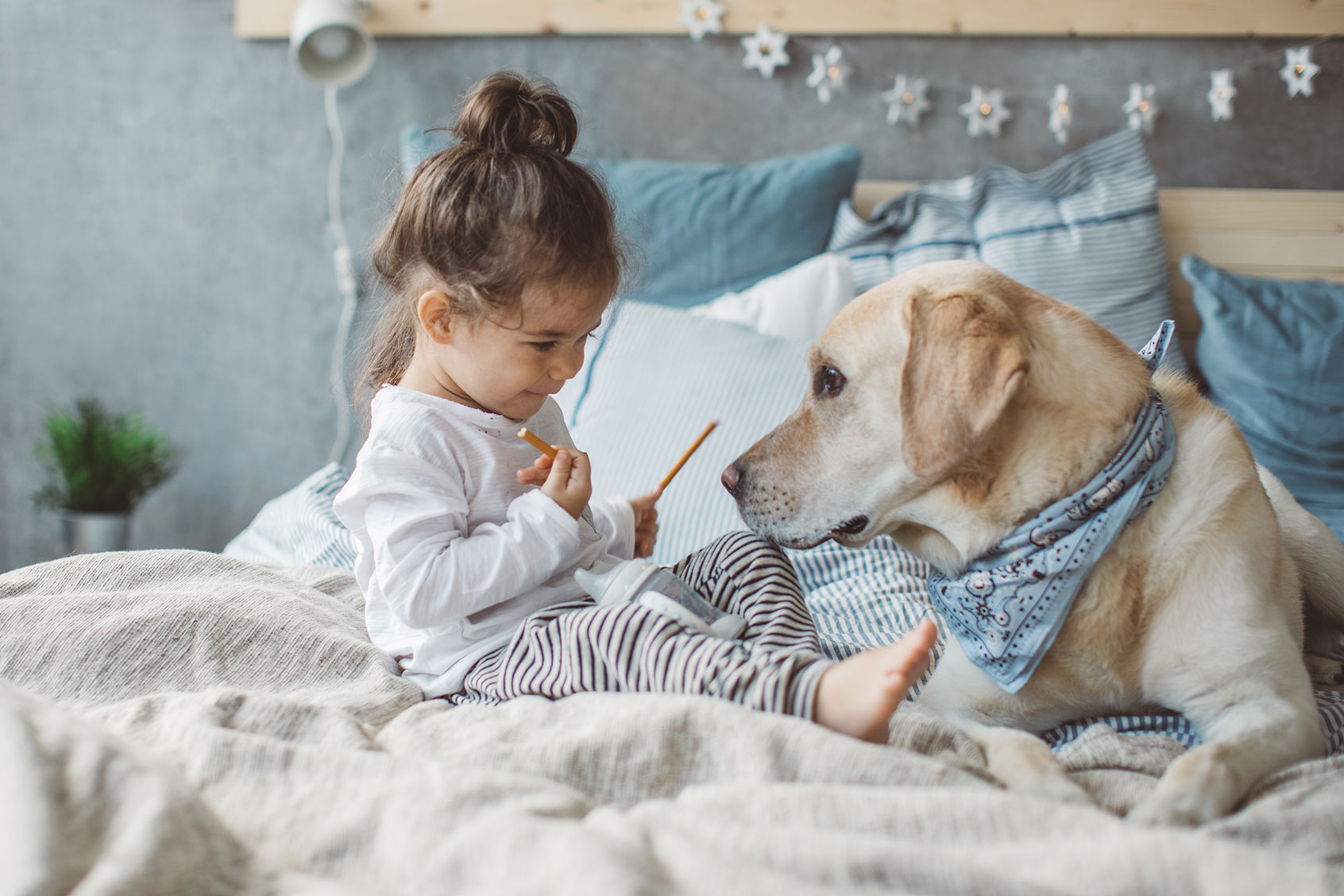Raising a dog is a lot like raising a baby: both have a predilection for eating food off of the floor, lack the fine motor coordination to avoid making a mess when they eat, and speak in nonsensical sounds. The two of them also seem to share another bond, too: evidently, some innate tendency to communicate and empathize with dogs exists in human children. The findings have intriguing suggestions for how empathy is hard-wired in human children.
Between 2015 and 2020, researchers at the University of Michigan studied the way toddlers react to unfamiliar dogs when those canine companions communicate distress. Among a group of 97 children (including 51 girls and 46 boys) aged 2 or 3 years — 44 of whom had dogs as pets — scientists found that, half of the time, they would assist a dog if the animal indicated that it wanted a toy or treat which had been placed out of reach. This conclusion is important because it reveals that children are capable of empathy and altruism toward animals outside of their own species.
“It’s been known for a long time that toddlers will go out of their way to help struggling humans, even strangers,” study co-author Henry Wellman, the Harold W. Stevenson Collegiate Professor Emeritus of Psychology at University of Michigan, said in a statement. “But perhaps such altruism is specially evolved for and targeted toward other humans (who after all might help them back). But no, it applies to other animals too, like dogs they will never see again.”
“It’s been known for a long time that toddlers will go out of their way to help struggling humans, even strangers.”
The study raises provocative questions about children’s capacity for empathy toward other other animals, too, including cats, horses, sheep, ducks and pigs.
“These findings lend support to our hypothesis that children’s early-developing proclivities for goal-reading and prosociality extend beyond humans to other animals,” Michigan alumna Rachna Reddy, the study’s lead author and postdoctoral fellow in evolutionary anthropology at Duke University, added in a statement.
Want more health and science stories in your inbox? Subscribe to Salon’s weekly newsletter The Vulgar Scientist.
Regardless of the bond between children and other animals, however, human beings as a species have a special connections to dogs — and this is not the only research to underscore the unique relationship. Human beings have an ancient relationship with dogs, tracing back largely to Eurasia, and as each species has co-evolved they have picked up on intuitive ways of understanding one another. A 2018 study in the scientific journal Learning & Behavior concluded that dogs are capable of understanding human facial expressions. Bunny, a labradoodle who has learned how to “talk” to humans by pushing a series of buttons, seems to communicate that she misses friends of hers when they are no longer around. A study in August even found that dogs shed tears of joy when they are in situations where they feel happy. Human beings feel an instinctive bond with canines that goes back to the prehistoric era, and which has been quantified by scientists in numerous ways.
“We know for a fact that when dogs and their pet parents look into each other’s eyes, it feels good to the canine as their oxytocin levels rise — a hormone that makes us feel good,” Renee Alsarraf, a veterinarian and author of “Sit, Stay, Heal: What Dogs Can Teach Us About Living Well,” told Salon by email at the time about the tears study.


